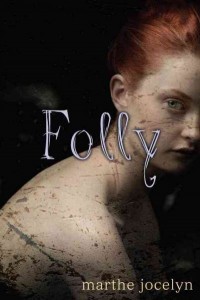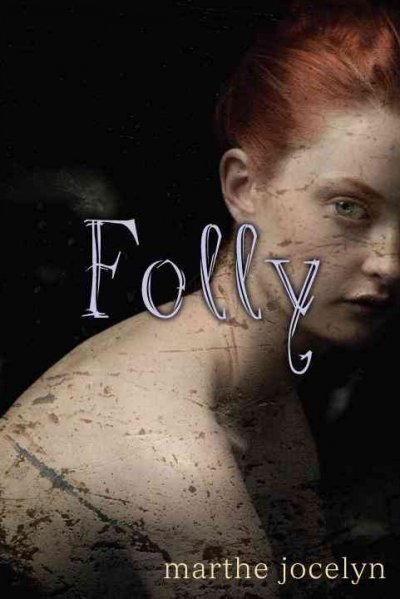Folly is a beautiful, lyrical, and richly textured story. The idea behind the novel began by author Marthe Jocelyn imaging a back-story to what may have been her own great grandmother’s struggle as a poor English country girl, living as a maid in London and becoming pregnant out of wedlock in the late 1800’s. Fired, homeless, and poor, she’s forced to abandon her baby boy (Marthe’s grandfather) to an orphanage where he’s raised without knowledge of her and then as a teen sent out in the world to make his way. What would this have been like? 
And so Jocelyn creates Folly. A dual narrative between a fictitious young Mary and James, as is later revealed, the son she abandoned at the orphanage. The voices are rich, feel pitch perfect, and immediately place the reader in the Merchant-Ivory like world of late Victorian London. Mary’s life as a housemaid is completely torn apart after her impetuous, fevered, and all consuming romance with a feckless soldier, Caden Tucker (“liar, scoundrel, heart’s delight”), leaves her pregnant and alone. Alternating between each chapter of Mary’s heartbreaking downfall, young James must leave the country home of his foster family and return to the foundling home in London where he must use his wits to survive and make a way for himself in a harsh, uncaring world.
Jocelyn creates Mary with a candid voice and tells her story with realism, strength and a credibility that is breathtaking at times. James’ innocence and resolve make the reader root for him survive the harsh life in the foundling house and shows that he is his mother’s son. To further enrich the story and Mary’s world, Jocelyn skillfully weaves in other voices: that of Eliza, a jealous maid who works in the house with Mary: and Oliver Chester, a lonely teacher at the orphanage who makes a rare, special connection to James. These characters round out the chorus of voices in this tragic, but ultimately hopeful, tale.
As a avid fan of historical fiction, I was especially touched by a thought Mary has midway through recounting her story: “Somehow I knew there were a gulch between what got writ down about history and what were remembered by the people who went along living it. No doubt the scholars checked their facts about battles and such nonsense, but weren’t those battles fought by boys who’d wished for their mamas, or bought peppermints or arm wrestled to win a bit of tobacco? Days went by, girls left home, children died, and who marked it all?” As Jocelyn proves with Folly, good historical fiction can immerse the reader into the world of those forgotten boys, girls, mothers and fathers.
- Posted by Cori

